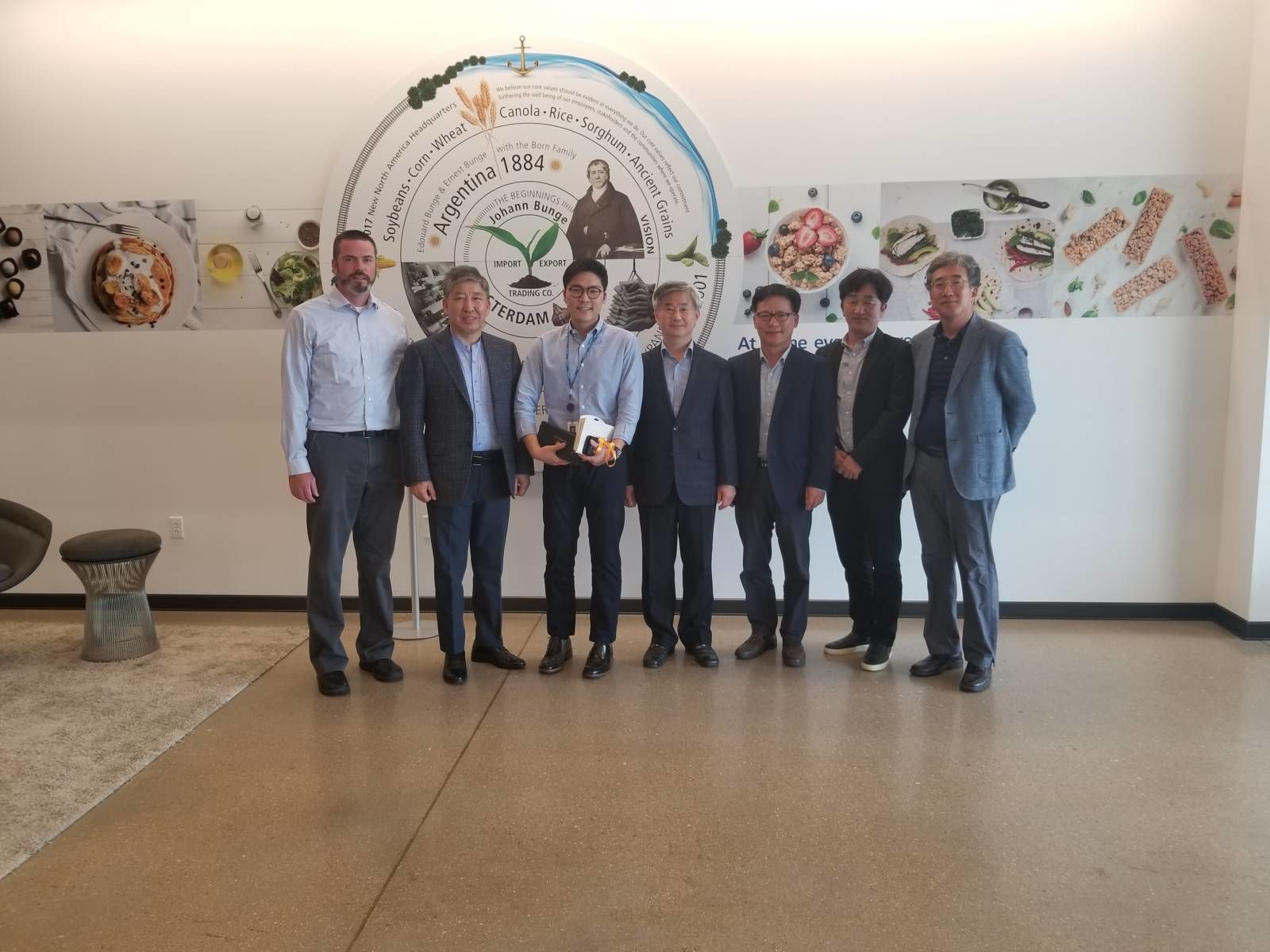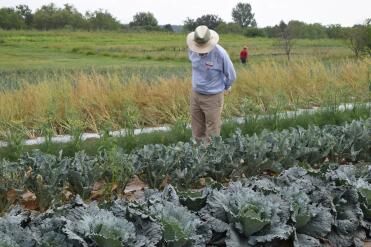USSEC works to build awareness of sustainability protocol with Korean soy processors team

Sustainability is more than a buzzword for the U.S. soy industry. With heavy demand for a responsibly grown product both at home and abroad, the U.S. Soybean Export Council is continually demonstrating its commitment to sustainability in all sectors of the U.S. soy industry. Toward this goal, USSEC has been assembling and hosting teams of soy processors and end users on missions to the U.S. to educate and demonstrate sustainability at every level of the U.S. soy industry and to promote the U.S. Soy Sustainability Assurance Protocol.
An elite group of Korean soybean oil refiners traveled to the U.S. in October to partake in a sustainability trade team mission arranged by USSEC. The mission was organized in an effort to build awareness among soy processors.
The idea behind the mission trip was to improve the group’s overall understanding about sustainable U.S. soy production with a focus on the U.S. SSAP. The team participated in a number of field trips and lectures to aid in the mission.
“I appreciate USSEC for the opportunity to understand what suitable farming and what U.S. SSAP is,” says Sang Hoon Kim, chairman of Korea Soybean Processors Association and President of Sajo Haepyo Corporation. “We now understand about U.S. soy growers’ efforts to care for the current and next generation in terms of crop rotation, cover crops, no till farming, terrace systems and precision farming.”
The team began at the University of Arkansas with Marty Matlock, executive director of the University of Arkansas Resiliency Center and Greg Thoma, professor of chemical engineering. The two presented on a wide range of sustainability topics including engaging stakeholders, measuring sustainability and the U.S. SSAP.
Following the University of Arkansas seminar, the group traveled to local soybean research farms in the Missouri area and had the opportunity to converse with the farmers.
In addition to the academic and farm visits, the team also toured the United States Department of Agriculture’s Natural Resource Conservation Service, Bunge and Bayer.
The team members were in agreement with the necessity of sustainable farming and they understood the benefit of U.S. SSAP with regard to their corporate social responsibility activities.

